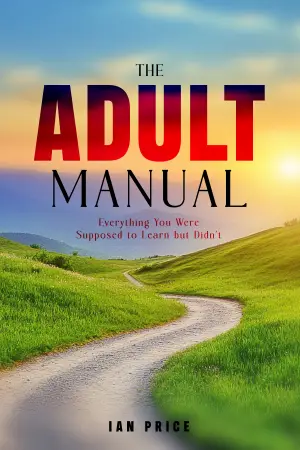I recently finished reading Self-Help for Overthinking, and I must say, it was a transformative experience. As someone keenly interested in self-development and psychology, I found this title particularly intriguing, as overthinking is something I’ve grappled with for years. I was drawn in by the promise of actionable strategies to break free from the mental traps of doubt and anxiety.
The book delves deep into the complexities of overthinking, which resonated with my own experiences. It opens with a compelling discussion on how our thought patterns can turn ordinary decisions into daunting challenges—something I can relate to all too well. The author introduces us to tools and techniques designed to disrupt these unproductive loops, offering step-by-step methods that feel both relatable and grounded in research.
One of the standout aspects was the chapter dedicated to identifying the hidden reasons behind overthinking. This insight was a lightbulb moment for me. It helped me reckon with some of my anxieties that I had brushed aside for too long. The book also emphasizes mental resilience with a well-structured blueprint for maintaining mental strength in the face of life’s challenges.
In addition, I found the practical to-do lists at the end of each chapter immensely helpful. They made the content actionable, which is often lacking in self-help books. The strategies presented to overcome social anxiety stood out, particularly as someone who frequently finds themselves confronting social situations with trepidation.
Though there were numerous positives, I did encounter a few drawbacks. Firstly, while the book is packed with valuable insights, some of the tactics felt a bit simplistic. At times, I wished for a deeper exploration of certain concepts, especially those related to workplace stress management. Additionally, while the author’s tone is generally engaging, there were moments where the writing felt somewhat repetitive, which could detract from the overall message for some readers.
Another thing to note is that the book is relatively short at around 140 pages. While I appreciated its succinctness, I would have loved more examples or case studies to further illustrate the effectiveness of the tools provided.
As I reflect on my overall experience, I can confidently say this book met and, in some areas, exceeded my expectations. The insights into overthinking were truly eye-opening, and the actionable steps made it a practical guide for anyone looking to regain control over their thoughts.
In conclusion, Self-Help for Overthinking is a commendable resource for anyone feeling trapped in their own mind. If you’re battling with self-doubt or anxious thoughts, I wholeheartedly recommend giving this book a read. It offers not just understanding but also a toolkit to tackle overthinking head-on. Whether you’re looking to break the cycle of anxiety or simply want to cultivate a more focused mindset, this book could be the first step on your journey to clarity.








